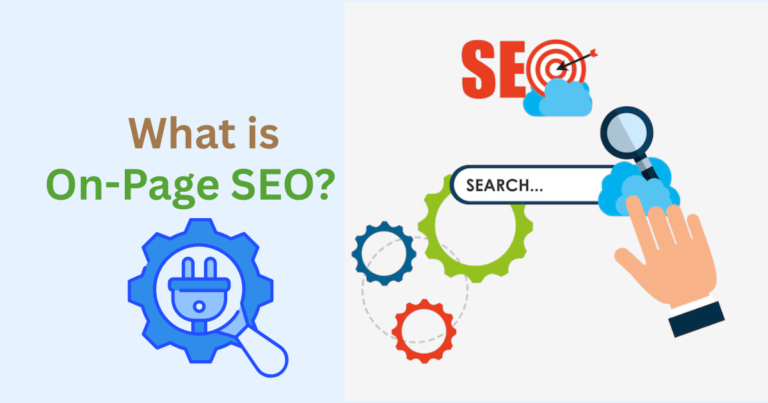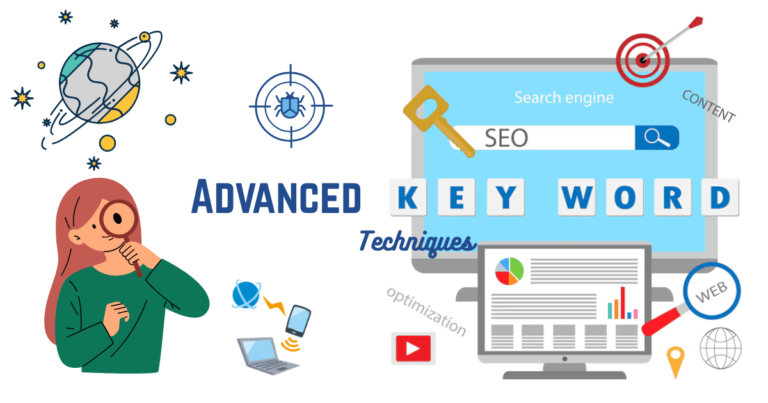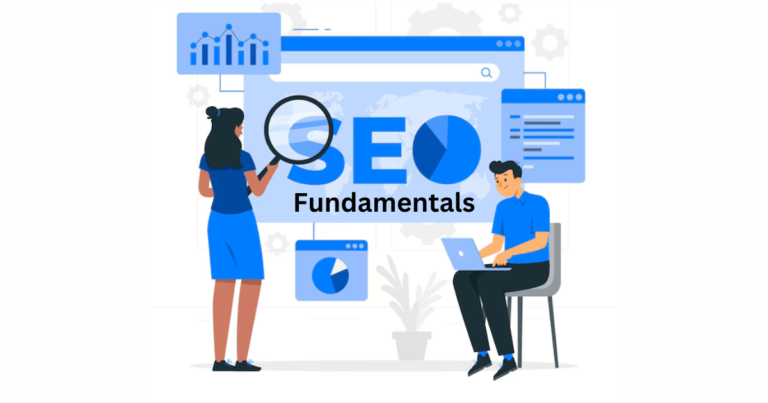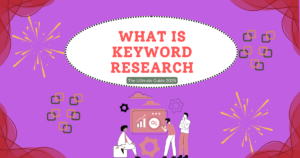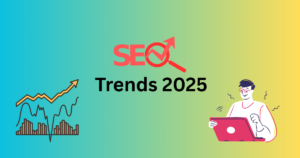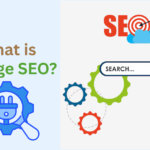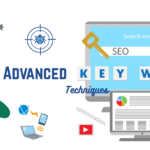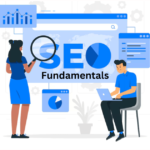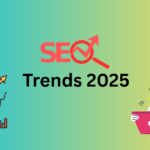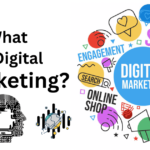In the ever-evolving world of online business, digital marketing stands as a cornerstone of success. Understanding its intricacies can help businesses connect with their target audience, boost online visibility, and achieve long-term growth. This guide explores various aspects of digital marketing, including its types, benefits, strategies, and tips for small businesses and e-commerce.
1. What is Digital Marketing?
Digital marketing is the practice of promoting goods and services through online platforms, tools, and tactics. Unlike traditional marketing, digital marketing allows businesses to engage directly with their target audience through digital channels like websites, social media, and search engines.
Why Digital Marketing is Important
- Cost-Effective Solutions: More affordable than traditional methods like TV or print ads.
- Measurable Results: Advanced analytics tools provide actionable insights.
- Enhanced Customer Engagement: Personalised content builds stronger relationships.
- Global Reach: Expands your audience beyond geographical boundaries.
2. Types of Digital Marketing

Understanding the different types of Digital Marketing Tips is crucial for choosing the right strategies. Each type serves a unique purpose and can be used individually or in combination to create a comprehensive marketing plan. Below, we dive deeper into the most common types of digital marketing and how they can benefit your business.
Table of Contents
Common Types of Digital Marketing
1. Search Engine Optimization (SEO)
SEO focuses on improving a website’s visibility on search engines like Google, Bing, and Yahoo. By optimizing your website’s content, structure, and technical elements, you can rank higher in search results and attract organic traffic.
- Key Strategies:
- Keyword research and implementation.
- Creating high-quality, engaging content.
- Building backlinks from authoritative websites.
- Optimizing for mobile and improving page speed.
Example: A local bakery is optimizing its website for keywords like “best cupcakes near me” to attract nearby customers.
2. Content Marketing
To draw in and keep a target audience, content marketing entails producing and disseminating worthwhile, timely, and consistent content. It’s not just about selling but about providing value to your audience.
- Key Strategies:
- Blog posts, eBooks, and whitepapers.
- Infographics and case studies.
- Video tutorials and webinars.
Example: A software company published a detailed guide on “How to Automate Your Business Processes” to educate potential customers.
3. Social Media Marketing
Social media marketing leverages platforms like Facebook, Instagram, LinkedIn, and Twitter to connect with your audience, build brand awareness, and drive engagement.
- Key Strategies:
- Posting regularly and engaging with followers.
- Running targeted ad campaigns.
- Collaborating with influencers.
Example: A fashion brand using Instagram to showcase new collections and partnering with influencers to reach a wider audience.
4. Email Marketing
One of the best strategies for fostering client relationships and increasing conversions is email marketing. It involves sending personalized emails to your subscribers.
- Key Strategies:
- Welcome emails for new subscribers.
- Newsletters with updates and promotions.
- Automated drip campaigns for lead nurturing.
Example: An e-commerce store sending personalized product recommendations based on a customer’s browsing history.
5. Pay-Per-Click (PPC) Advertising
- Key Strategies:
- Targeting specific keywords and demographics.
- A/B testing ad copy and visuals.
- Retargeting visitors who didn’t convert.
Example: A travel agency running Google Ads for keywords like “affordable vacation packages” to attract potential travelers.
6. Affiliate Marketing
Affiliate marketing involves partnering with affiliates who promote your products or services in exchange for a commission on sales or leads.
- Key Strategies:
- Building a network of affiliates.
- Providing affiliates with promotional materials.
- Tracking performance with affiliate software.
Example: An online course platform partnering with bloggers to promote their courses in exchange for a percentage of sales.
7. Influencer Marketing
Influencer marketing involves collaborating with influencers—individuals with a large and engaged following—to promote your brand or products.
- Key Strategies:
- Identifying influencers who align with your brand.
- Co-creating content with influencers.
- Tracking campaign performance through metrics like engagement and conversions.
Example: A skincare brand partnering with a beauty influencer to review their products on YouTube.
8. Video Marketing
Marketing uses platforms like YouTube, TikTok, and Instagram Reels to share engaging video content. Videos are highly effective for storytelling and capturing the audience’s attention.
- Key Strategies:
- Creating how-to videos and tutorials.
- Sharing behind-the-scenes content.
- Running video ad campaigns.
Example: A fitness brand posting workout tutorials on YouTube to attract fitness enthusiasts.
9. Display Advertising
Advertising involves placing visual ads (banners, images, or videos) on websites, apps, or social media platforms. User demographics and behaviour can be used to target these advertisements.
Key Strategies:
- Using eye-catching visuals and compelling CTAs.
- Retargeting users who visited your website.
- A/B testing ad designs.
Example: An online retailer is using display ads to retarget users who abandoned their shopping carts.
10. SMS Marketing
SMS marketing involves sending promotional messages or alerts directly to customers’ mobile phones. It’s a highly effective way to reach customers instantly.
- Key Strategies:
- Sending time-sensitive offers and discounts.
- Personalizing messages for higher engagement.
- Keeping messages short and actionable.
Example: A restaurant sends SMS alerts about daily specials to its subscribers.
How to Choose the Right Type of Digital Marketing
- Understand Your Goals: Are you looking to increase brand awareness, generate leads, or drive sales?
- Know Your Audience: Which platforms do they use, and what content do they engage with?
- Budget Constraints: Some strategies, like SEO, require time but are cost-effective, while others, like PPC, require a budget.
- Track and Adjust: Use analytics to measure performance and refine your strategies.
Understanding these types of digital marketing tips and how they work can help businesses create a tailored strategy that aligns with their goals and target audience. Whether you’re a small business or a large enterprise, leveraging the right mix of digital marketing tips can drive significant growth and success.
3. Understanding SEO in Digital Marketing

Search Engine Optimisation, or SEO, is the foundation of any digital marketing plan. It involves optimizing website content and structure to improve organic search rankings.
Key Elements of SEO
- On-Page SEO: Optimising content with keywords, meta tags, and headers.
- Off-Page SEO: Building backlinks to improve site authority.
- Technical SEO: Ensuring fast loading times, mobile-friendliness, and secure websites (HTTPS).
- Local SEO: Targeting location-based searches to attract nearby customers.
SEO Trends for 2025
- AI-Driven SEO: Tools like ChatGPT for content optimization.
- Voice Search Optimization: Optimising for voice-activated searches.
- E-A-T (Expertise, Authority, Trustworthiness): Google’s focus on credible content.
4. How to Start Digital Marketing
Starting a digital marketing journey can be overwhelming, but a structured approach simplifies the process.
Steps to Begin
- Set Clear Goals: Define what you want to achieve (e.g., more traffic, higher sales).
- Understand Your Audience: Research demographics, preferences, and online behaviour.
- Choose the Right Channels: Focus on platforms where your audience spends time.
- Create High-Quality Content: Develop engaging and informative content.
- Measure Results: Use analytics tools like Google Analytics to track progress.
5. Digital Marketing Fundamentals
To succeed, businesses must grasp the fundamentals of digital marketing tips.
Core Concepts
- Customer-Centric Approach: Focus on solving customer problems.
- Consistent Branding: Keep your message consistent across all platforms.
- Data-Driven Decisions: Use analytics to guide your strategies.
- Adaptability: Keep abreast of emerging trends and technological advancements.
6. Digital Marketing Business and Careers
Digital marketing offers lucrative career opportunities and business prospects.
Careers in Digital Marketing
- SEO Specialist: Focuses on improving search engine rankings.
- Content Marketer: Creates engaging content for blogs, social media, and websites.
- Social Media Manager: oversees the social media presence of the brand.
- Digital Advertising Expert: Runs PPC and display ad campaigns.
- Data Analyst: Tracks and interprets marketing performance data.
Starting a Digital Marketing Business
- Build a portfolio showcasing your expertise.
- Network with potential clients and industry professionals.
- Offer tailored services to meet diverse client needs.
7. Digital Marketing Content
Content is the lifeblood of digital marketing. It educates, informs, and engages your audience.
Effective Content Marketing Strategies
- Create content tailored to audience interests.
- Use visuals like infographics and videos to enhance engagement.
- Optimize content for SEO to boost visibility.
- Repurpose content across multiple channels.
8. Future of Digital Marketing
The future of digital marketing is shaped by advancements in technology and changing consumer behaviour.
Emerging Trends
- Artificial Intelligence (AI): Automating tasks like ad targeting and content creation.
- Voice Search Optimization: Optimizing for smart speakers and voice assistants.
- Interactive Content: Quizzes, polls, and AR/VR experiences.
- Privacy-First Marketing: Adapting to stricter data privacy regulations.
9. Digital Marketing Strategies

A well-planned digital marketing strategy is essential for achieving your goals.
7 C’s of Digital Marketing
- Customer: Understand and prioritize customer needs.
2. Content: Deliver valuable and relevant content.
3. Channel: Choose the right platforms for your audience.
4. Community: Build strong relationships with your audience.
5. Communication: Maintain open and transparent communication.
6. Conversion: Turn visitors into loyal customers.
7. Consistency: Ensure a unified message across all touchpoints.
10. Benefits of Digital Marketing
Businesses of all sizes can benefit greatly from digital marketing tips.
Key Advantages
- Cost-Effectiveness: Affordable compared to traditional methods.
- Global Reach: Access to customers worldwide.
- Improved Targeting: Ability to focus on specific audience segments.
- Measurable Results: Track and analyze performance metrics.
11. Digital Marketing Tips for Small Businesses
Small businesses can leverage digital marketing tips to compete with larger companies.
Tips for Small Businesses
- Focus on local SEO to attract nearby customers.
- Use social media to build brand awareness.
- Partner with influencers to expand reach.
- Invest in affordable marketing tools for automation.
12. Creating Effective Digital Marketing Strategies
Developing an effective strategy involves detailed planning and execution.
Steps to Success
- Conduct a SWOT Analysis: Determine your opportunities, threats, weaknesses, and strengths.
- Set SMART Goals: Make sure your objectives are time-bound, relevant, quantifiable, achievable, and specific.
- Allocate Budget: Prioritise high-impact areas.
- Monitor Performance: Adjust strategies based on results.
13. E-commerce Digital Marketing Tips

E-commerce businesses thrive with strong digital marketing tips that drive growth and customer engagement. Optimize product pages with SEO to rank higher in search results, use social media ads to target specific audiences, and leverage email marketing for personalized offers. Retarget customers with display ads, create engaging video content and ensure a seamless mobile experience. These strategies enhance visibility, boost traffic, increase conversions, and build long-term loyalty.
Effective Techniques
- Optimize product pages with targeted keywords.
- Use retargeting ads to re-engage potential buyers.
- Provide seamless mobile experiences.
- Offer discounts and promotions to drive sales.
14. Improving Online Visibility
Improving online visibility is essential for attracting and retaining customers.
Proven Methods
- Publish high-quality, SEO-optimized content.
- Leverage social media platforms for wider reach.
- Build backlinks from reputable websites.
- Participate in online forums and communities.
15. Social Media Growth Strategies
Social media is a powerful tool for growing your brand and audience.
Best Practices
- Post consistently and at optimal times.
- Engage with your audience through comments and messages.
- Collaborate with influencers for wider exposure.
- Analyze performance metrics to refine strategies.
16. Estrategias de Marketing Digital (For Spanish Audience)
El marketing digital es esencial para conectar con audiencias hispanohablantes.
Estrategias Clave
- Optimiza contenido para SEO en español.
- Utiliza plataformas populares como Facebook y WhatsApp.
- Implementa campañas de correo electrónico personalizadas.
- Crea contenido relevante para la cultura local.
Additional Insights
To further enhance your digital marketing efforts, consider these additional tips:
- Use Analytics Tools: Platforms like Google Analytics provide insights into user behaviour.
- Invest in Training: Stay updated with online courses and certifications.
- Experiment and Innovate: Test different strategies to discover what works best.
Conclusion:
Incorporating digital marketing tips into your business strategy is crucial for staying ahead in today’s competitive online landscape. By applying the right techniques—such as effective SEO, content marketing, social media engagement, and email strategies—you can significantly boost your online visibility, attract more customers, and drive conversions. Whether you’re a beginner or an experienced marketer, continuously adapting and learning new digital marketing tips will ensure you remain relevant and successful in reaching your target audience. Keep exploring and refining your digital marketing approach for consistent growth and success.
FAQ
1. What is Digital Marketing?
Digital marketing promotes products and services online using tools like websites, social media, and search engines to reach and engage customers effectively.
2. How to Start Digital Marketing as a Beginner?
Learn the basics, choose the right platforms, create valuable content, and use free tools like Google Analytics to track your progress.
3. What is SEO in Digital Marketing?
SEO (Search Engine Optimization) improves a website’s ranking on search engines to drive organic traffic using keywords, backlinks, and optimized content.
4. What Are the Benefits of Digital Marketing for Small Businesses?
It’s cost-effective, improves customer engagement, expands global reach, and offers measurable results with real-time analytics.
5. How to Create an Effective Digital Marketing Strategy?
Set clear goals, research your audience, choose the right platforms, create engaging content, and track performance regularly.


